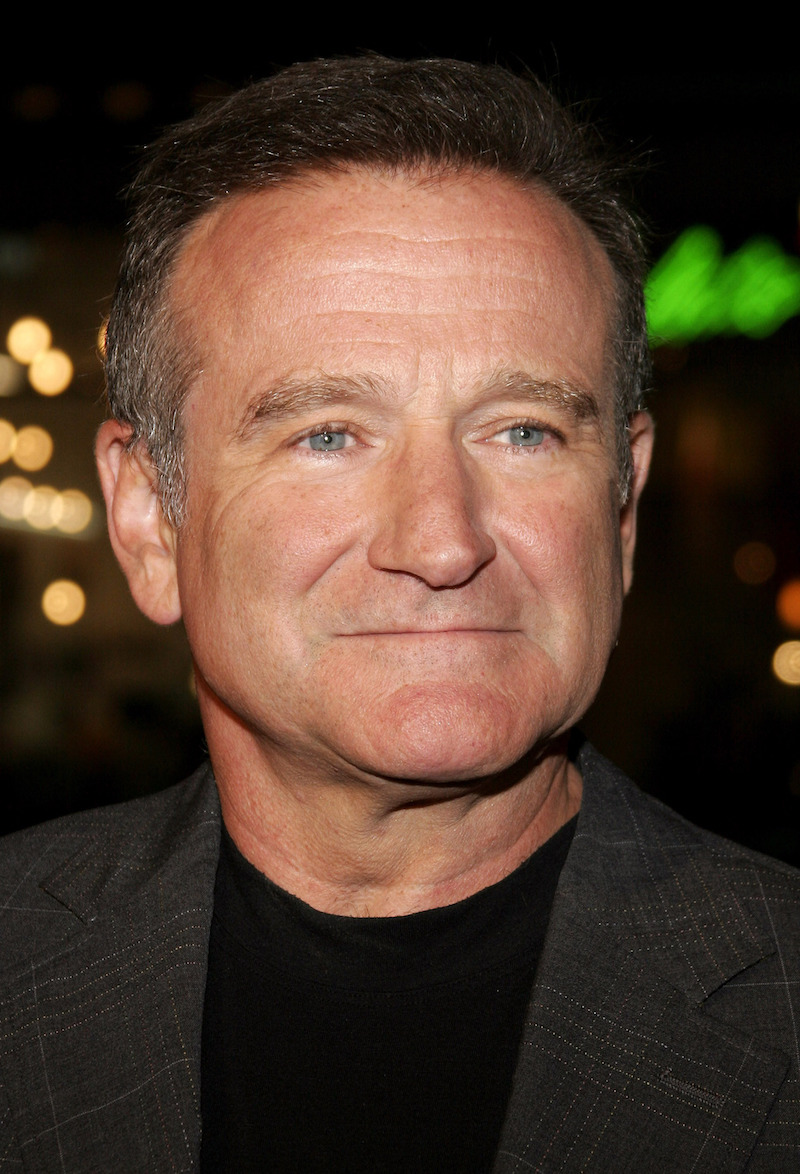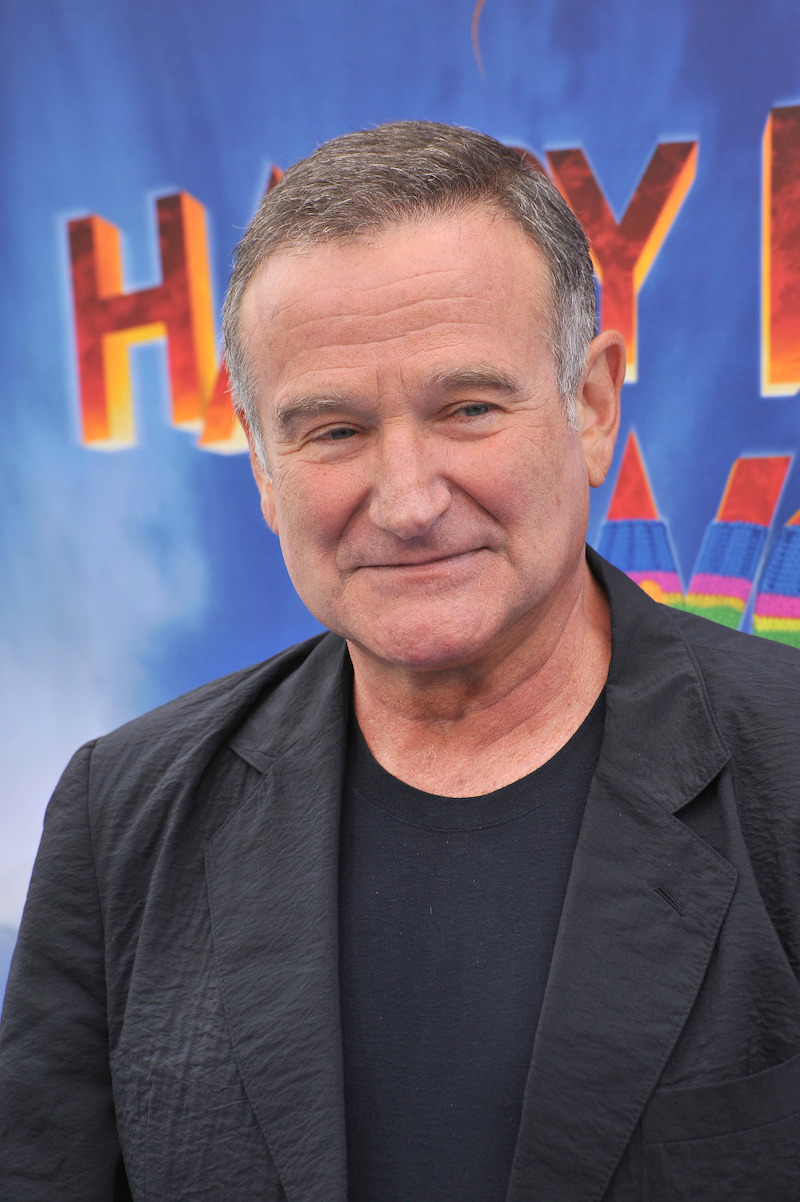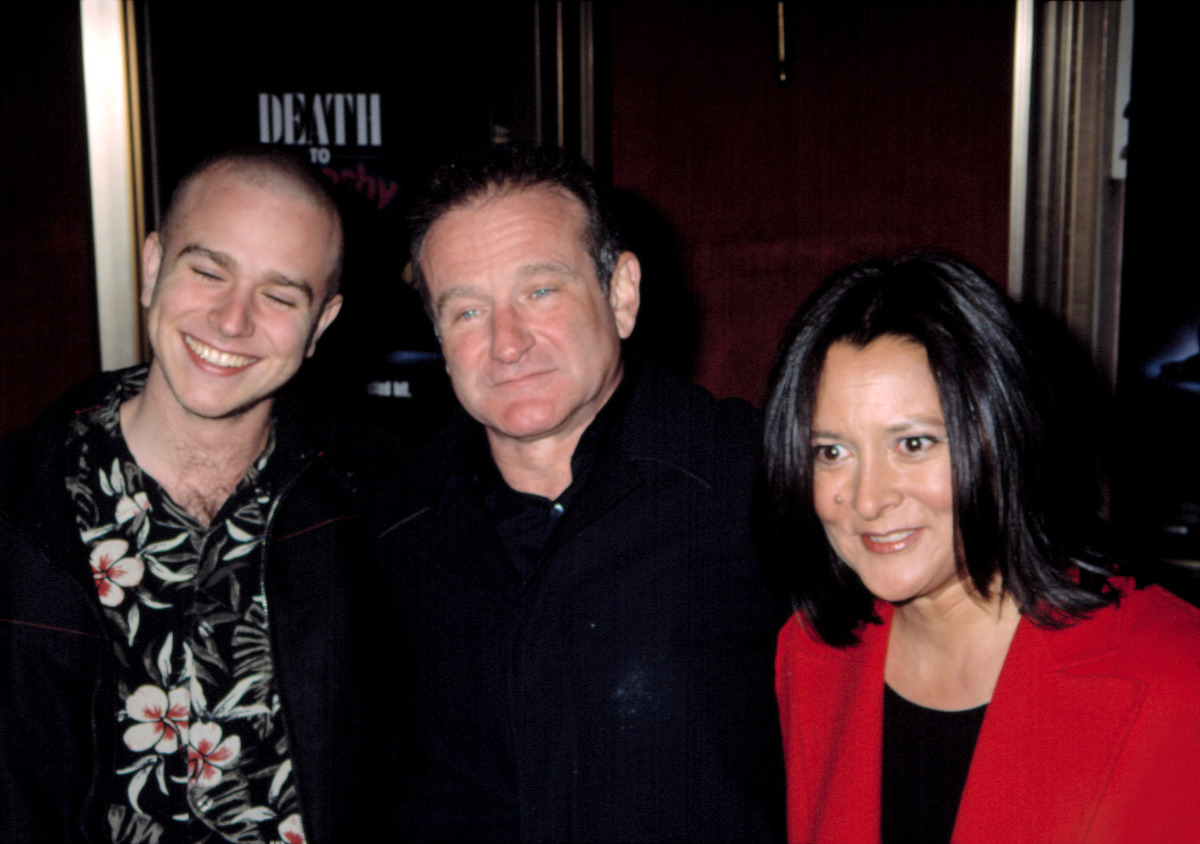Robin Williams’ Parkinson’s Misdiagnosis Made His Health Worse, His Son Says

On what would have been his 70th birthday, Robin Williams‘ son, Zak Williams, opened up about his father in a major way. On the podcast The Genius Life (via People), Zak spoke about his father’s 2014 suicide, including the fact that he had been misdiagnosed with Parkinson’s disease—something that was only found out after he died. Rather than Parkinson’s, it turned out Robin had Lewy body dementia.
Zak believes that the misdiagnosis may have made Robin even more uncomfortable in his final years, because his symptoms didn’t entirely match up with his diagnosis. Zak also saw the toll that the medicine his father was prescribed took on him and thinks it may have made the situation worse. Read on to see what Zak had to say, and to learn more about the disease Robin was suffering from.
Robin Williams felt “frustrated” after being misdiagnosed with Parkinson’s disease.

On the podcast, which was released on Robin’s birthday, July 21, Zak shared that being misdiagnosed with Parkinson’s disease was a struggle for his father, not only because he was dealing with declining health, but because his symptoms didn’t align with his diagnosis.
“He was frustrated because what he was going through didn’t match one-to-one to what you can say many Parkinson’s patients, people suffering from Parkinson’s experience,” Zak said. “There was a focus issues that frustrated him. There were issues associating with how he felt, and also from a neurological perspective, he didn’t feel great … There was just more anxiety and depression and things he was just talking to me about that made me realize that he was very uncomfortable.”
RELATED: If You Notice This While Walking, It Could Be an Early Sign of Parkinson’s.
Zak also mentioned the medicine Robin took decreasing his quality of life.

After being diagnosed with Parkinson’s, Robin was given medication to combat that disease and “those drugs are no joke,” Zak said on the podcast. “They put you through it. There’s a range of efficacy, but what I found was they’re also really hard on the mind and the body, so that was hard to see,” he added.
Zak said that sometimes he saw “some improvement,” but “sometimes it didn’t help at all.”
“It might have exacerbated the situation,” he surmised. “That said, the diagnosis was different than the disease, so I think it could be a situation where you’re taking stuff and experiencing purely the side effects of it.”
Robin actually had Lewy body dementia, not Parkinson’s.

While Robin was diagnosed with Parkinson’s disease, after he died by suicide in August 2014, an autopsy found that he was actually suffering from Lewy body dementia. According to the Mayo Clinic, Lewy body dementia is the second most common type of dementia after Alzheimer’s.
With Lewy body dementia, “protein deposits, called Lewy bodies, develop in nerve cells in the brain regions involved in thinking, memory and movement (motor control),” the Mayo Clinic explains. “Lewy body dementia causes a progressive decline in mental abilities.” As CNN reports, Lewy body dementia is often misdiagnosed as Parkinson’s or Alzheimer’s due to the similarity in early symptoms.
RELATED: The CDC Says These Are the Early Signs of Dementia You Need to Know.
Zak talked about how hard the experience was for both Robin and his family.

“When he died by suicide, [the disease] had progressed, but he was only really two years in. I don’t want to say it was a short period—it felt a lot longer than it actually was—but it was a period for him of intense searching and frustration,” Zak said on the podcast. “From my lens, it felt so sad for me because I loved him so much as a dad, but also he was one of my best friends, and we spent so much time together. For him to confide in me and share his experience, it’s frightening, you know, and I have a lot of empathy for family members or people going through similar or the same experience because it’s just devastating.”
For more celebrity news delivered right to your inbox, sign up for our daily newsletter.
Zak went through his own struggles after Robin’s death.

After his dad died, Zak explained that he self-medicated with alcohol. “When I spoke with a psychiatrist, I was diagnosed with PTSD,” said Zak, who has now been sober for four years.
Zak has since become a mental health advocate, and the owner of Pym, a company that makes “mood chews” that “are made with amino acids and adaptogens that target the body’s hormone levels to manage stress and anxiety.”
On the Pym website, Zak explains that his own experience grieving his father inspired him to start the brand. “After my dad took his life in August of 2014, my anxiety went into overdrive. I found myself depressed, anxious, traumatized, and unable to cope with daily life,” he wrote. “My brain still needed something to bring itself back to center. Through a lot of research, I discovered there are a wealth of botanical adaptogens and amino acid complexes that help recalibrate our body and brain so it can heal itself. … I finally found something that actually made me feel OK, made me feel normal, and helped me not just get through the day but actually thrive. Pym prepares your mind to produce the naturally occurring neurotransmitters that help you feel like yourself again.”
RELATED: See Robin Williams’ Three Kids Now.